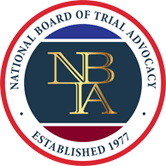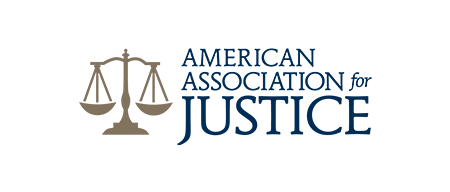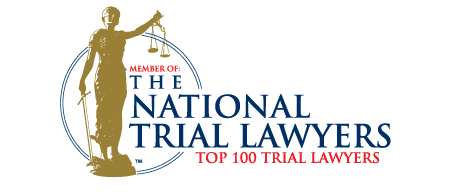New Mexico Medication Error Lawyer
Unfortunately, there are several types of healthcare negligence that can cause patients to end up in worse conditions than when they began seeking diagnosis or treatment. One example is medication error. If you were harmed after receiving the wrong medication, contact a New Mexico medication error lawyer to inquire about a potential medical malpractice claim.
How Medical Malpractice Is Proven
The error must involve negligence; an inconsequential mistake does not constitute malpractice, nor does your condition not improving upon receiving the typical treatment that meets the standard of care imply negligence.
In order to prove negligence, your injury attorney must first show the court that the ailment you were initially seeking help with was not an unknown or rare disease but instead has a standard of care. Your lawyer also must provide evidence that the treatment you received from the provider differed from what a reasonable physician would provide under the same circumstances, according to the standard of care. This shows that your doctor breached the duty owed to you.
Evidence must also address that this breach in care directly caused you further harm as a result, and the injury was enough to yield damages, such as additional medical costs to address the inflicted harm and long-term effects on the victim’s health. Your attorney has to prove that it was the physician’s breach of duty that led to your injury. Specifically, they must show that your worsening condition or new issues were not coincidental and would have occurred without the negligence.

Common Types of Medication Errors
These are a few common examples of how a mistake with a patient’s medication may occur:
- Pharmacy errors. A patient can potentially endure serious harm if the pharmacist inaccurately fulfills their prescription, such as providing the person with the wrong medication or too high of a dosage.
- Provider prescribes the wrong medication. It’s possible that an individual’s healthcare provider may negligently inflict injury after mistakenly prescribing them the wrong medication, an incorrect dosage of that drug, or a medication that conflicts with their current meds or medical history, etc.
- Incorrect patient records or instructions. It’s crucial that all documentation relating to healthcare and medical treatment is completely correct and easily understandable. If a patient’s medical record does not accurately reflect their medical history or current medications, etc., there’s the potential for a provider to prescribe improper treatment based on inaccurate information. Additionally, if the patient is sent home with incorrect instructions for taking their medication, they can suffer avoidable injury that way.
- Medical personnel failing to properly administer medication. If the nurses or other medical staff attending to a patient receiving inpatient care are not diligent about correctly administering their medications, disastrous consequences may follow.
Examples include forgetting to provide meds every few hours as instructed, administering medication doses too close together, or if a patient receives the improper dosage or administration method (such as the medication being given intravenously instead of orally).
Potential Injuries From Medication Mistakes
Medication errors may inflict no additional harm to your health. If this is the case, it is not considered to be malpractice and you cannot receive compensation. The same is true if the right medication was given, but it did not have positive effects. Only victims of medical negligence can receive monetary compensation, and an important tenet of medical negligence is that the injury inflicted by the improper treatment must be significant enough that damages result.
Relevant damages include medical bills from resolving the avoidable injury, extra time spent recovering from the initial injury or illness that was made worse by incorrect medical care, and permanent or long-term cognitive and bodily impacts. Damages can also include costs related to the person’s death if the medical negligence was severe enough.
Qualifying injuries from a medication error include having an adverse reaction to the incorrect drug or dosage (such as an allergic reaction), organ damage, worsening of the primary medical condition, injury to the brain causing cognitive disability, acquiring a new disorder, becoming comatose, other catastrophic injuries, and even wrongful death.
FAQs
Q: How Much Is Compensation for Incorrect Medication?
A: The compensation amount for mishandled or incorrect medication depends on several factors. The severity of the injuries, including how long a full recovery will take or whether permanent damage was caused, greatly affects how much the court may award. Additionally, if the victim’s career and earning capacity are impacted due to the injury diminishing their ability to work or work as effectively, they’ll likely receive a higher settlement than someone who is able to return to work quickly.
Q: How Do You Prove Medication Errors?
A: A medication error from negligent medical treatment must be proven by establishing each medical negligence element.
Your attorney must prove that there’s a widely accepted standard of care for the medical issue you needed treatment for– one that a reasonable physician would have provided for the same scenario – and that your provider failed to meet this standard of care. Proof must also show that this breach of duty is what caused an injury significant enough to yield damages.
Q: Who Pays for Medical Mistakes in NM?
A: The party responsible for paying for medical mistakes depends on which party is liable for the error. If an individual provider is responsible, their medical malpractice insurance is likely to pay the claim. In most instances, if the negligent party is an employee of a clinic or a hospital, the larger entity will ultimately be held financially responsible for the mistake.
Q: What Are the Odds of Winning a Medical Malpractice Suit?
A: Your odds of winning your malpractice injury claim in New Mexico will depend on the strength of evidence your attorney can collect and create a compelling argument with. Civil lawsuits, such as medical malpractice and other personal injury accidents, require the court to rule in favor of the plaintiff. This means that an injured plaintiff can win their case if the judge is persuaded by the evidence that there’s a more than likely chance your claim is true.
Qualified Attorneys to Help You Get Compensation for Malpractice Injury
If you or a loved one has been injured as a result of a medication error, you should focus on healing. A skilled medical malpractice attorney can help handle the legal aspect while you recover.
Reach out to the professional team at Branch Law Firm if you have any questions about filing a medical malpractice claim or require legal assistance with pursuing compensation for your personal injury.
 Knowledge Experience Compassion Service
Knowledge Experience Compassion Service 






